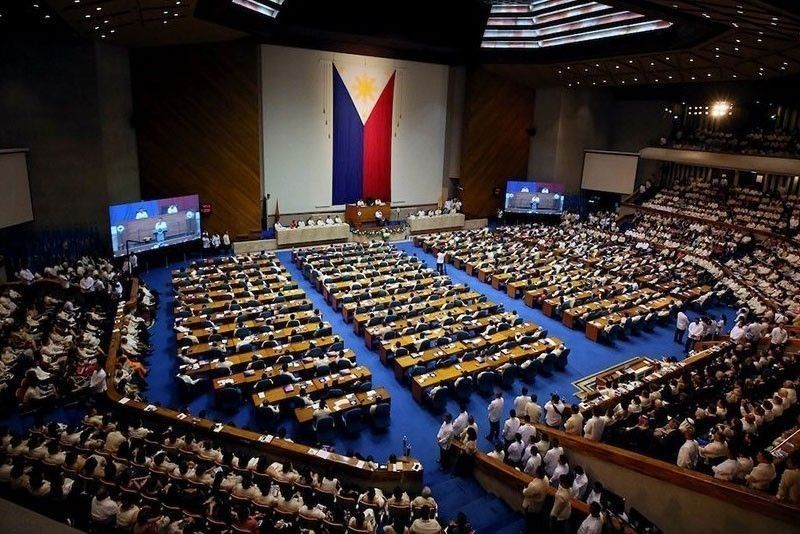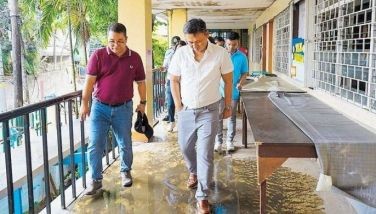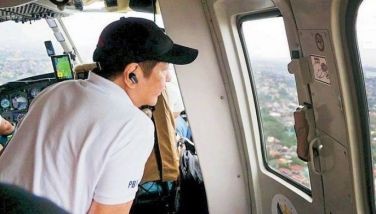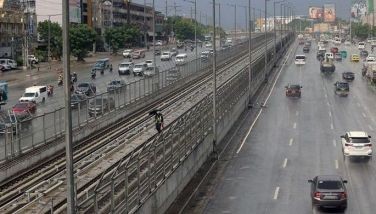Government now running on reenacted budget

MANILA, Philippines — The national government yesterday started running on the reenacted P3.757-trillion 2019 national budget because President Duterte is still reviewing the proposed P4.1-trillion spending program for this year.
By mandate of the Constitution, the previous year’s appropriations law is deemed recycled if the current year’s budget is not yet in place.
Palace officials have said the President might sign the budget bill next week.
Senate President Vicente Sotto III and Sen. Sonny Angara earlier said the signing of the budget measure would be on Jan. 6.
Angara said extending the validity of last year’s budget would help fund the completion of many projects and programs, including the repair and rehabilitation of 2,933 classrooms, electrification of 593 schools, acquisition of medical equipment as well as the construction of 2,884 health facilities and infrastructure projects.
Duterte is reportedly scrutinizing the proposed 2020 outlay passed by the House of Representatives and the Senate for possible pork barrel-type insertions.
Speaker Alan Peter Cayetano has assured Duterte that there is no “pork” in the proposed P4.1-trillion national budget.
“There is really no pork as defined by the Supreme Court. As a general rule, all projects are open to corruption. The question is: are there projects inherently open to corruption like lump sums under the discretion of lawmakers who can tell agencies where to use them? There is none,” he said.
In November 2013, the Supreme Court struck down the congressional pork barrel, officially called Priority Development Assistance Fund, as unconstitutional. The ruling bars lawmakers from including in the national budget lump-sum appropriations whose use is subject to their discretion. It also prohibits them from meddling in project implementation.
However, the ruling does not prevent them from itemizing their projects in the budget while it is under their consideration.
“So do we have many projects? Yes, we have roads, we have bridges, we have information technology infrastructure, we have hospitals, we have schools, etc. Could those be corrupted? In terms of possibilities, yes, but that is no longer the role of the budget, that is the role of our anti-graft laws and enforcement,” Cayetano said.
Deputy Speaker Mikee Romero, who is an economist, said a one-week delay in the enactment of the 2020 spending bill would not affect the economy.
“It’s unlike the budgetary mess we faced last year. Though the President signed the budget in April, the delay really extended to at least six months due to the tedious process of releasing and obligating funds. It really took its toll on the economy, whose growth slowed down in the first two quarters before recovering in the third quarter,” he said.
Romero, who represents party-list group 1-Pacman, said the enactment of the budget bill next week would allow the administration to sustain such recovery and maintain economic growth within the 6-7 percent range.
Another deputy speaker, Luis Raymund Villafuerte of Camarines Sur, said he expects two budget-related measures approved by Congress before its yearend recess “to propel the economy to a higher trajectory in 2020.”
He said these measures are the national budget and Republic Act 11464, which made unspent portions of the 2019 outlay available until Dec. 31, 2020.
“Both the 2020 budget, which the President is due to sign in January, and RA 11464 would enable government to sustain the catch-up spending strategy that President Duterte’s economic team put in place in this year’s third quarter to make up for the four-months-and-a-half delay in the passage of the 2019 spending bill that hobbled economic growth in the first semester,” he said.
He stressed that a strong economic spurt powered by much higher state spending and low inflation would “keep the country among the world’s fastest-growing economies for the remainder of the Duterte presidency, against the backdrop of weakening global growth brought about by, among others, the US-China trade spat, Brexit and climate change.”
“The timely passage of the 2020 budget was a radical departure from the four-months-and-a-half delay in the approval of the 2019 outlay, which had undermined this year’s gross domestic product (GDP) growth as Malacañang had to run the government on the reenacted 2018 budget for most of the first semester,” Villafuerte said.
As a result of that budget delay, Malacañang had to hold off implementation of ongoing and new priority projects on infrastructure modernization and human capital formation – leading to the anemic GDP growth in this year’s first and second quarters,” he added.
More reforms
Sen. Panfilo Lacson said the fiscal year 2020 could usher in more reforms in the crafting of the national budget.
“The coming year may finally mark the beginning of the end for the ‘disconnect’ that has shut out far-flung towns and provinces from much-needed funding for their development programs,” Lacson said in a statement.
The senator was referring to the Department of Budget and Management (DBM)’s policy requiring agencies to secure certifications from regional development councils (RDCs) for projects to be included in the proposed national budget for 2021.
He said in the P4.1-trillion budget for 2020, projects initiated by the RDCs accounted for only 25 percent of development projects in the National Expenditure Program (NEP) that forms the basis of the budget bill.
“Yet, local government units, especially those in far-flung areas, are in the best position to know their constituents’ needs and priorities,” Lacson said.
He thanked Budget Secretary Wendel Avisado for requiring agencies to obtain certifications from RDCs. “This is a step in the right direction that we must follow,” Lacson said.
He said Avisado had informed agencies of an order for certifications ahead of the budget call for 2021.
Despite greater role for RDCs, he said members of Congress, particularly district representatives, can still play an active role in pushing worthy projects by taking part in meetings of local development councils, where they are members.
They can then shepherd the projects once the NEP is submitted to Congress, he said.
He said under the Local Government Code, district representatives can help shape priority projects for their towns, cities or provinces by taking part in the Local Development Councils.
“What is important is to end this big disconnect between the needs and priorities of LGUs and the national budget,” he said.
“So long as this disconnect exists, poor provinces will get poorer because they cannot get the funding for the projects that will address their needs and priorities,” he added.
Lacson expressed hope 2020 will finally “mark the beginning of the end as well of attempts to manipulate the budget to accommodate the interest of the chosen few.”
“Such attempts have led to the funding of projects that did not undergo proper planning, which in turn result in low budget utilization,” he said.
He said Filipinos must remain vigilant against abuses in the budget, and report them to authorities concerned.
“As I have repeatedly been emphasizing, the national budget is the lifeblood of the economy, if not the country itself. No government or no nation will survive without its healthy components and circulation,” Lacson said.
- Latest
- Trending




























